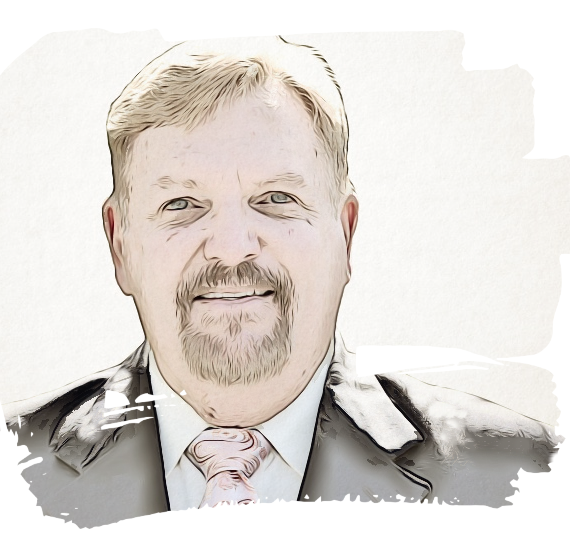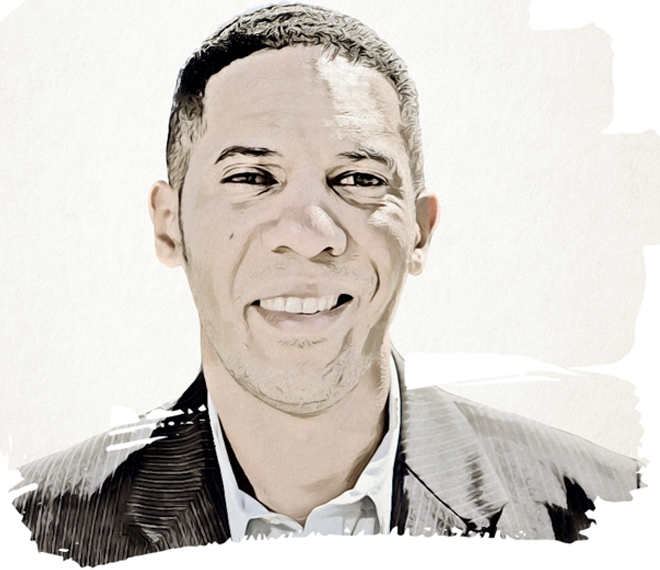Long Beach Second District City Council Candidate Questionnaire
by Kevin Flores and Joe Brizzolara | Published February 26, 2020 in Journalism
13 minute readIn less than two weeks, voters across the state will head to the polls to participate in California’s first ever “Super Tuesday” primary election. While there’s plenty of up-ballot action to be excited for, including presidential primaries, residents in Long Beach’s Second, Sixth, and Eighth City Council districts will be picking new representatives.
We sent out a questionnaire to the Second District candidates and they all returned answers except for Jeanette Barrera.
But before we get to that, a little bit about the district and the state of the race. The Second District includes the neighborhoods of Bluff Heights, Rose Park, and Carroll Park to the east and makes its way west along the shoreline to the southern half of Downtown, including the East Village Arts District and Shoreline Village. It encompasses the Port of Long Beach and is home to the Queen Mary. Its population is about 51,000, according to city estimates.
The district has a sharp disparity in household income between the northern and southern, more coastal areas.
Homelessness and parking rank towards the top of the list of issues residents will be looking for their new councilmember to tackle.
The city’s latest point-in-time count found that there were 1,894 people experiencing homelessness in Long Beach. Although the overall numbers have been trending down since 2013, the number of people who said they were experiencing their first bout of homelessness jumped by 9% since 2017. This may be due partly to the fact that Long Beach rents have spiked in recent years as housing stock lags behind—in both the city and state as a whole—while wages for the bottom half of workers have actually declined.
A 2018 study commissioned by the city certified what residents in the district know all too well: finding parking in Alamitos Beach is rough on a good day and damn near impossible on a bad day. Half of the neighborhood’s residents reported that on average they circled around for over 20 minutes before finding a spot. That’s a lot of extra carbon emissions put in the air.
Incumbent Councilmember Jeannine Pearce bowed out from the race late last year. An advocate for progressive causes including worker and tenant protections, she’s been met with stiff opposition from some of the city’s business interests throughout her time on the council.
She’s also had some pretty turbulent stretches resulting from personal scandal. There was an unsuccessful recall attempt and eventual censure by her council colleagues in 2018 stemming from a relationship with a subordinate, which violated the city’s code of ethics. It came to light after police responded to an altercation that broke out between the couple on the side of the 710 Freeway in June 2017. She is also currently being investigated by the state’s Fair Political Practices Commission for not disclosing a conflict of interest concerning the Queen Mary.
Seven candidates with diverse backgrounds have entered the wide-open race for the seat and whoever wins might be sticking around for a while.
Long Beach voters decided in 2018 to give councilmembers a cap of three four-year terms. With the name recognition and fundraising advantage accompanying incumbency, a win on Tuesday could easily turn into 12 years on the council.
Of late, the race has been quite eventful, with an exposé by Beachcomber columnist Stephen Downing (and a follow-up report by the Long Beach Post) finding that establishment favorite Cindy Allen ostensibly sold her advertising firm (which has been awarded over a million dollars in city contracts) to a less-than-reputable fella from Georgia. Allen has now said the sale fell through, which could lead to a conflict of interest should she be elected.
Downing’s article also called into question her residency in Long Beach (though the City Clerk’s Office later stated that Allen has voted in Long Beach since 2008). Downing also cast doubt on her allegiance to the Democratic party, writing that she was a lifelong Republican until switching teams in 2017. This has not been independently verified by FORTHE Media. Her opponents, as to be expected, have seized on the story.
Tomisin Oluwole
Fragmented Reflection I, 2021
Acrylic on canvas panel
24 x 30 inches
Click here to check out our interview with Tomisin Oluwole, a literary and visual artist based in Long Beach.

Instead of gunking up our site with ads, we use this space to display and promote the work of local artists.
“My first time running for office I’ve come up and hit head-on with the giant and powerful political machine that operates here in Long Beach,” fellow candidate and vegan YouTuber Ryan Lum took to the platform to say.
Landlord rabble-rouser Robert Fox has also injected his fair share of color into the race, staging a protest along Broadway opposing changes by the city that reduced the number of traffic lanes in favor of adding bicycle lanes. Lum countered by saying the bike lanes made the road safer.
Social worker and early-bird candidate Barrera, who is often followed to events by a conga-line of blue-shirted acolytes, has lobbed a few barbs, accusing the Fox camp of nabbing her lawn signs and getting into a sniping match with the incumbent at an Our Revolution endorsement meeting.
Accountant, late-night impresario, and all-around nice guy Nigel Lifsey is running on using his financial acumen to get more bang for the city’s buck. He’s also secured the endorsement of unofficial candidate and reverse centaur Horsey Horseshoe (look him up).
School safety officer Jesus Cisneros has called for a “tough stance” on homelessness and does not seem to be a fan of political correctness, which may be why he took a photo-op next to folks sleeping rough for his campaign’s Instagram page. He’s also falsely claiming to be endorsed by the Los Angeles County GOP. How do we know? Because we checked.
Cal State Long Beach sociology professor Eduardo Lara (who’s sharing Seventh District Councilmember Roberto Uranga’s New York Times-esque endorsement with Cindy Allen) has positioned himself as the foremost progressive candidate, running on economic justice and decrying “trickle-down economics.”
As of publication, Barrera has received $10,823 in total contributions and received donations from the Amalgamated Transit Union, which represents Long Beach Transit employees. Fox has a $60,694 warchest, that is mostly self-funded, but he’s also received numerous donations from small businesses and individuals. Lifsey has raised $2,185 so far, of which $750 came from his own pocketbook. Lum has raised $2,935. Lara received $22,167, including a $3,000 check from himself, a donation from the American Federation of State, County and Municipal Employees (the largest trade union of public employees), and Pearce’s shuttered reelection committee.
None, however, have matched Allen’s haul of just over $92,000. Contributors include a hodgepodge of politicos, hotels, unions, and real estate interests. On top of that, the Police Officers Association’s independent expenditure committee has put their boot on the scale by spending over $20,000 on mailers in favor of Allen.
The questionnaire we sent to candidates was comprised of eight questions, the first four were written by FORTHE reporters and the last four were provided by community groups who do work in the district. They include: Long Beach Residents Empowered (LiBRE), a tenants rights group; Surfrider Foundation, Long Beach Chapter, a nonprofit environmental organization; Long Beach Transportation And Parking Solutions, a parking advocacy group; and Everyone In (Long Beach), a local affiliate of the Everyone In campaign powered by United Way of Greater Los Angeles, which seeks to end homelessness and the housing crisis by supporting affordable and supportive housing.
We’d like to thank the six candidates who participated in the questionnaire and the organizations that submitted questions.
Answers have been lightly edited for clarity.
New changes to the election process in Los Angeles County means voters will be able to cast ballots up to ten days before election day, March 3, at any polling place in the county. The locations can be found here. You can watch a video from the county explaining the balloting changes here.
One of our members, Madison D’Ornellas, did not participate in the editorial process of this questionnaire due to a conflict of interest.
Help Us Create An Independent Media Platform for Long Beach
We believe that what we are trying to do here is not only unique, but constitutes a valuable community resource. We are dedicated to building a fiercely independent, not-for-profit, and non-hierarchical media organization that serves Long Beach. Our hope is that such a publication will increase civic participation, offer a platform to marginalized voices, provide in-depth coverage of our vibrant art scene, and expose injustices and corruption through impactful investigations. Mainly, we plan to continue to tell the truth, and have fun doing it. We know all this sounds ambitious, but we’re on our way there and making progress every day.
Here’s what we don’t believe in: our dominant local media being owned by one of the city’s wealthiest moguls or a far-flung hedge fund. We believe journalism must be skeptical and provide oversight. To do so, a publication should remain free from financial conflicts of interest. That means no sugar daddy or mama for us, but also no advertisements. We answer to no one except to our readers.
We call ourselves grassroots media not only because we are committed to producing work that is responsive to you, dear reader, but because in order for this project to continue we will also need your support. If you believe in our mission, please consider becoming a monthly donor—even a small amount helps!










 kevin@forthe.org
kevin@forthe.org @reporterkflores
@reporterkflores




